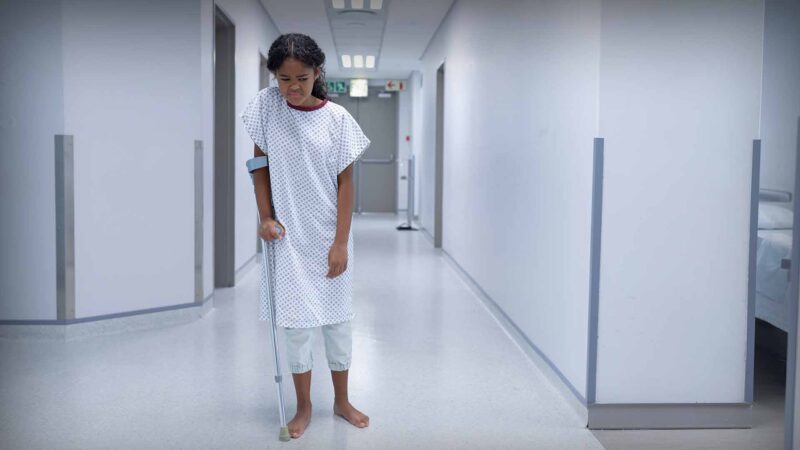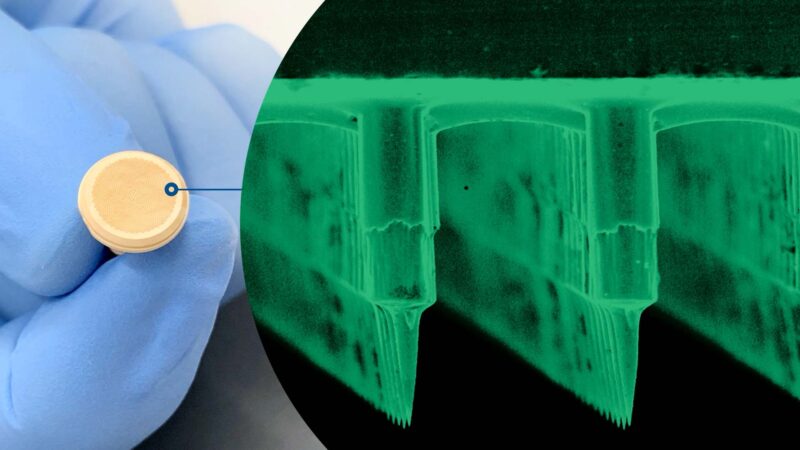RESEARCHER PROFILE (Filmed November 2023)
Dr Felicity Han, Research Fellow
Australian Institute for Bioengineering and Nanotechnology
University of Queensland, Australia
Applying nanotechnology to chronic pain management
Dr Felicity Han is a Research Fellow and Leader in Pain Relief Innovation, at the Australian Institute for Bioengineering and Nanotechnology in the University of Queensland. Dr Han’s research interests sit at the interface of drug delivery and the pain field. Her overarching research goal is to improve the quality of day to day life of patients suffering from chronic pain, by applying nanotechnology to the development of novel highly effective pain-killer products for improving chronic pain management.
Dr Han’s team have developed five different techniques to produce painkiller-loaded nanoparticles and nanofibers aimed at improving pain relief for patients where available pain-killers either lack efficacy or produce dose-limiting side-effects. With the use of their nanoparticles, Dr Han’s team aim to turn a small but potent peptide that has been on the market for over a decade into an oral treatment for improving pain management that currently lacks efficacy in patients. T
Dr Han’s research focuses on developing drug-products to solve one of the largest unmet medical needs in the pain field through the use of sustainable materials. Her team are currently working on developing multifunctional sutures including biodegradable pain relief sutures and innovative novel nanoparticles, which deliver innate-immune targeting peptides for the treatment of cancer and cancer-related pain. Their research also investigates the role of C5a and C3a in the pathogenesis of chronic pain including neuropathic pain, cancer-related pain, low back pain, and OA pain.
Dr Han works in collaboration with other leading Australian and international researchers to stay at the forefront of the drug delivery systems field and the pain field. They also provide a preclinical evaluation of novel compounds and formulations.
Dr Han enjoy’s volunteering within the academic community, most notably as Head of the SBMS ECR Committee and Treasurer for The Queensland Chinese Association of Scientists and Engineers (QCASE). Currently, she is serving as a guest editor of Pain Research and Management.
You Might also like
-
Hormone receptor positive breast cancer and therapy resistance
Prof Elgene Lim is a medical oncologist at St Vincent’s Hospital and Head of the Connie Johnson Breast Cancer Research Lab at the Garvan Institute. Following his PhD at the Walter & Eliza Hall Institute where he identified the aberrant cells in carriers of the BRCA1 mutant gene, a hereditary breast cancer syndrome as the culprit cells giving rise to breast cancer, he furthered his research and clinical training at the Dana-Farber Cancer Institute and Harvard Medical School. He was awarded the National Breast Cancer Foundation Practitioner Fellowship in 2014 and returned from Boston to Australia. In 2017, he was awarded the inaugural National Breast Cancer Foundation Endowed Chair, and subsequently appointed the Principal Cancer Theme Lead at UNSW.
-
Neuroscience, neuropharmacology and exercise science
Dr Jacob Thorstensen is an early-career Assistant Professor in Neuroscience and Physiology in the Faculty of Health Sciences & Medicine at Bond University. He is also an honorary research fellow in The School of Biomedical Sciences at The University of Queensland. His work has unveiled several new neuroscientific mechanisms which have future applications for movement disorders.
-
Dr Kelly-Anne Masterman
RESEARCH IN BRAIN COMPUTER INTERFACE
@ SYNCHRON
MELBOURNE, VICTORIA, AUSTRALIA



